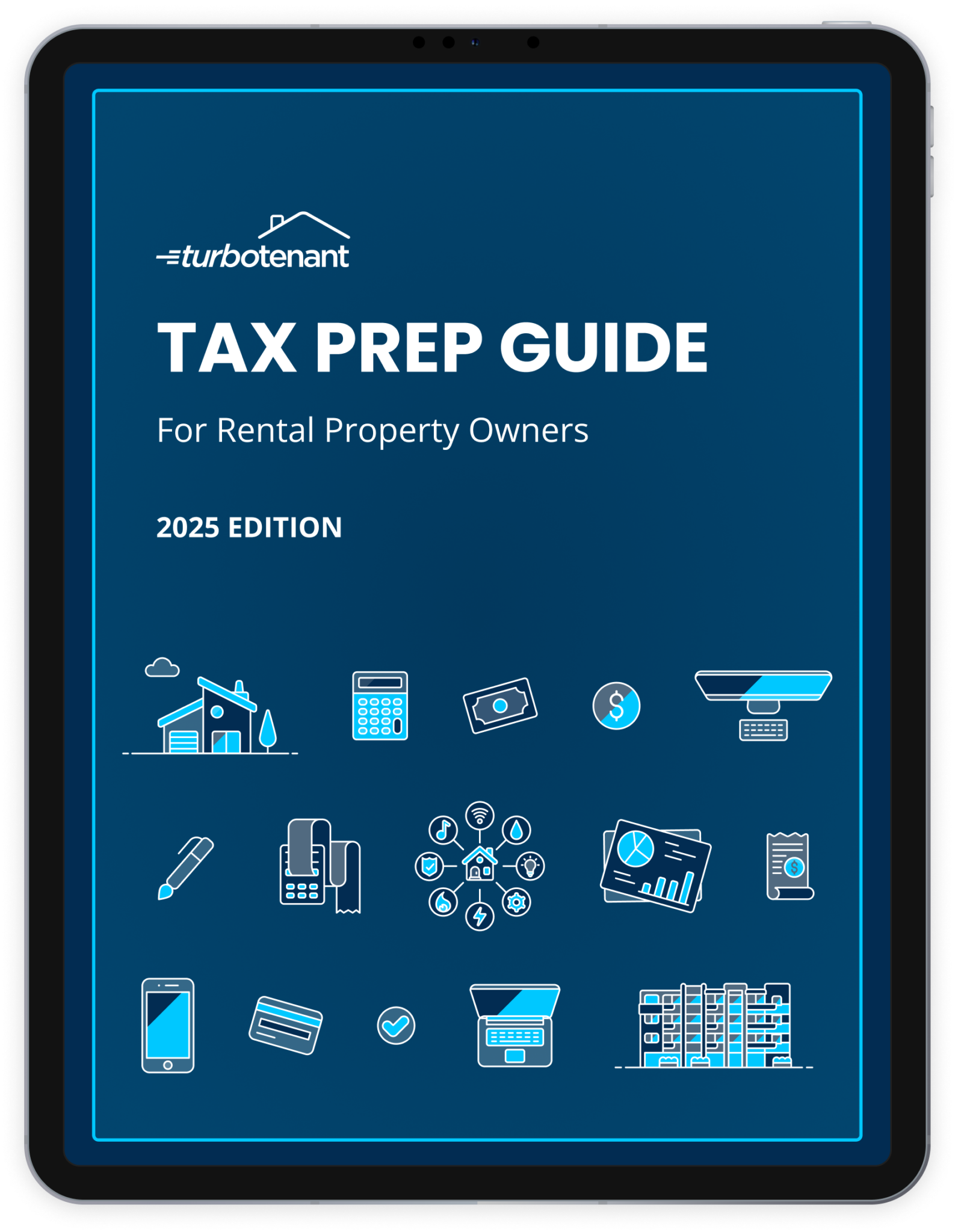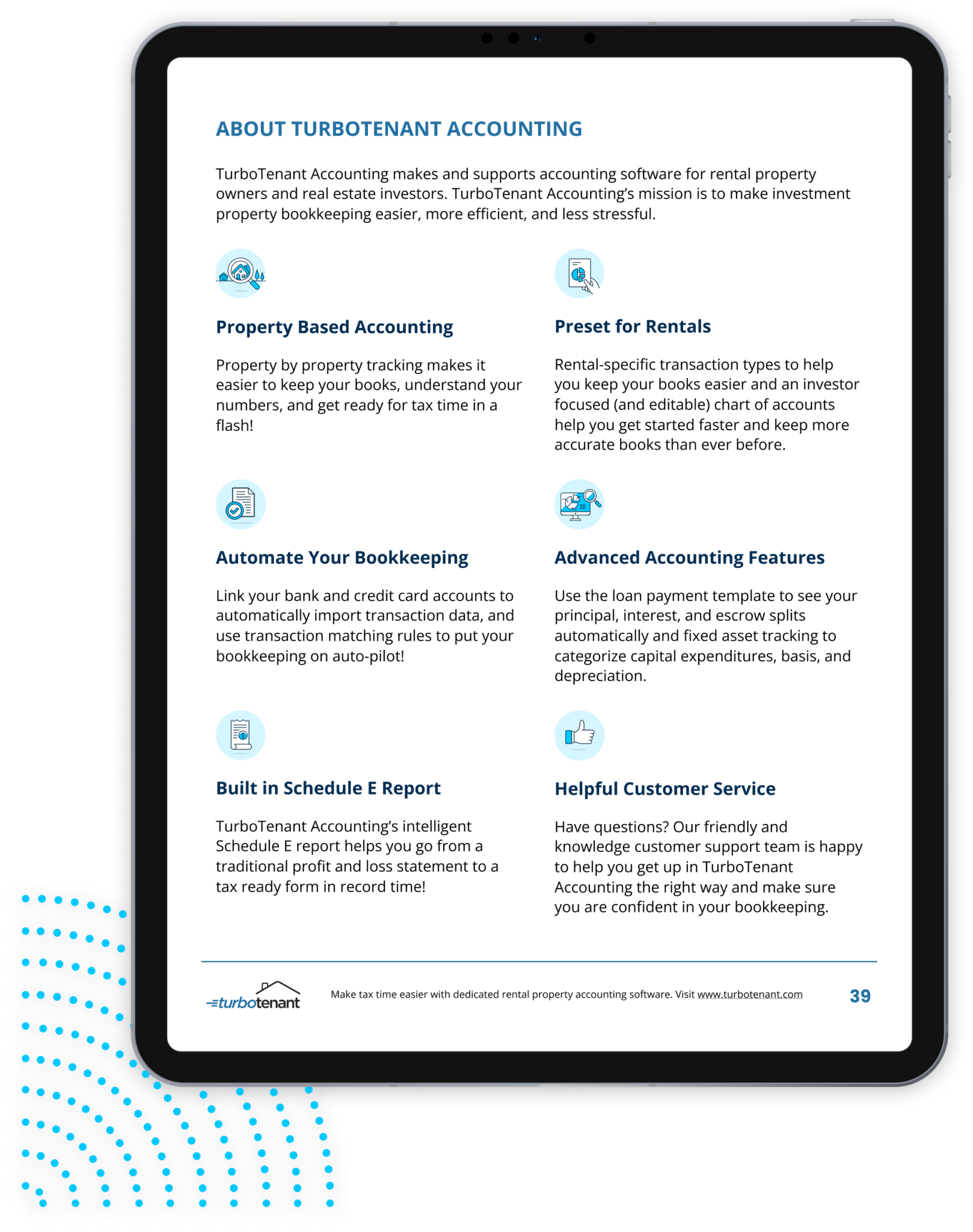Tax guide for Landlords
Stop stressing about tax season. TurboTenant’s free Tax Prep Guide simplifies rental taxes, helps maximize your deductions, and ensures you’re IRS-ready.
Get straightforward guidance on rental income, expenses, and how to accurately complete the Schedule E—so tax time is easy, not overwhelming.

Landlord taxes, explained clearly
The tax guide you need to file confidently
Identify every eligible expense, from mortgage interest to travel mileage, so you keep more of your rental income.
Learn the essentials of property-by-property bookkeeping and how accurate records simplify your rental tax reporting.
Demystify your Schedule E, depreciation, and how to handle short-term rentals, house hacks, and multi-member LLCs.

Navigate your rental taxes with confidence
Stop worrying about missed deductions or complex forms. Our landlord-focused tax guide gives you the insights you need to file accurately, save time, and maximize your bottom line.
This guide will help you understand…
- Key considerations for rental property bookkeeping and taxes
- Tracking rental income: rents, other revenues, and exceptions
- Managing rental expenses: expenses, cap ex, and loans
- Reviewing reports & preparing the schedule E
Tax Guide FAQs
What tax form should I use to report my rental property income?
You should typically use IRS Schedule E (Form 1040) to report income and expenses from your rental properties. This form helps you clearly itemize rental income and deductible expenses.
How do I know if an expense is deductible?
An expense is deductible if it’s ordinary, necessary, and directly related to managing or maintaining your rental property. Examples include mortgage interest, property taxes, repairs, and advertising fees.
Can I deduct expenses from vacant rental units?
Yes—expenses like mortgage interest, property taxes, insurance, and certain utilities are typically deductible even when your rental unit is temporarily vacant, provided you’re actively seeking tenants.
What’s the difference between repairs and improvements for tax purposes?
Repairs maintain your property and are fully deductible in the year incurred. Improvements enhance or prolong your property’s value and must be depreciated over several years.
Can I deduct travel expenses related to my rental properties?
Yes, you can deduct travel costs for tasks directly related to managing your rentals, such as collecting rent, property inspections, or showing units. Always keep clear records of mileage and purpose to support these deductions.
I like it; it’s really easy to digest and doesn’t feel like it was written by a lawyer, so it’s a lot less intimidating… it feels more like a conversation than accounting jargon, so it reads really easily”
– Michelle Ross
Additional Resources
10 min read
6 Key Tax Benefits of Owning Property for Landlords
It’s common wisdom that purchasing real estate provides some of the most dependable returns on investment out there. While owning and operating...
10 min read
A Guide to Maximizing Returns: Rental Property Depreciation
Learn how rental property depreciation can maximize returns by reducing taxable income for real estate investors.
8 min read
5 Essential Property Management Bookkeeping Tips
DIY landlords who want to keep accurate records benefit from checking out our five essential property management bookkeeping tips.
Still want more?
Check out our full ebook library for comprehensive, business-building resources at your fingertips.
Join the 700,000+ independent landlords who rely on TurboTenant to create welcoming rental experiences.
No tricks or trials to worry about. So what’s the harm? Try it today!



